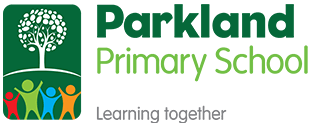Science Curriculum
Intent
At Parkland Primary School a high-quality Science curriculum provides the foundations for understanding the world through the specific disciplines of biology, chemistry and physics. Science has changed our lives and is vital to the worlds future prosperity, and all pupils are taught essential aspects of the knowledge, methods, processes and uses of science. Through building up a body of key foundational knowledge and concepts, pupils should be encouraged to recognise the power of rational explanation and develop a sense of excitement and curiosity about natural phenomena. They should be encouraged to understand how science can be used to explain what is occurring, predict how things will behave, and analyse causes.
Implementation
At Parkland Primary School, teachers work collaboratively using subject progression maps and knowledge mapping to coherently plan and sequence learning journeys designed to allow our pupils to gain cumulatively sufficient knowledge to ensure they are ready for the next stage of their education.
For each science unit we block learning and re-visit practice over time through a spaced practise approach as research suggests this will lead to better long-term retention of knowledge. Retrieval practice is a fundamental part of our Science curriculum as it is proven to strengthen memory and make it easier to retrieve the information later. Opportunities for retrieval practise occur in two places in the curriculum:
- Daily review to activate prior learning forms the start of most lessons.
- Retrieval practice of non-negotiable taught knowledge will happen on three separate spaced occasions away from the point of teaching the topic. This should support children in securing long-term knowledge acquisition.
Aims of a Science knowledge-led curriculum:
- pupils develop scientific knowledge and conceptual understanding through the specific disciplines of biology, chemistry and physics
- pupils develop understanding of the nature, processes and methods of science through different types of science enquiries that help them to answer scientific questions about the world around them
- pupils are equipped with the scientific knowledge required to understand the uses and implications of science, today and for the future
EYFS
The EYFS Framework focuses the learning and development of children in the foundation years through seven areas of learning. The knowledge and skills taught in EYFS feed into the science curriculum but are not taught as subject specific. The most relevant early years outcomes for science are taken from the area of learning entitled, Understanding the World.
The knowledge and skills needed to achieve these outcomes are taught mostly through children playing and exploring during continuous provision times in the day. Teachers deliberately plan enhanced activities which give opportunities for children to learn through their own discovery. Some elements of Understanding the World are taught through teacher-led lessons which link to half-termly topics such as; All About Me and Where I live, Farming and Minibeasts.
KS1/KS2
The Science curriculum is planned to build on previous learning of knowledge and skills, before developing new learning. Using the subject progression documents for both Science knowledge objectives and Working Scientifically skills, teachers plan science learning journeys. Teachers plan a science learning journey to include a pre-assessment or quiz of the childrens prior knowledge, which is then used to support the route of the journey. Learning journeys are taught in blocks of lessons and therefore Science is timetabled differently in each year group. Teaching Science as a block of lessons throughout a week or two, allows the children to master and deepen their scientific knowledge as they are encouraged to think scientifically and develop their skills, alongside mastering new knowledge. This is supported by carrying out low stake quizzes throughout the learning journeys and the use of knowledge organisers to clarify the knowledge needed to meet the learning objectives.
Impact
Assessing Progress
Pupils progress is assessed using regular formative assessment in lessons through strategies such as questioning, regular retrieval practice, quizzing, independent learning tasks and assessment of work in books and feedback.
The knowledge and skills for each topic is assessed more formally using knowledge-based quizzes and/or a high-quality independent skills application outcomes e.g. scientific investigation or report planned into the learning journey. Teachers will use this assessment to provide further feedback or re-teach concepts where necessary to close gaps and ensure pupils have mastered the curriculum content at that point. The aim is for the identified non-negotiable knowledge for Science to be retrieved on three separate spaced occasions from the point of teaching. The aim of this approach is to secure long-term knowledge acquisition and provide more summative assessment information to support teachers in tracking progress.
Tracking Pupil Progress
In Science, pre and post assessments are used to assess the learning of each individual child. This may look different for each year group, depending on the scientific topic that they are studying at the time and what has been taught in previous year groups.
Individual progress is reported to parents through two termly Parents Evenings and an end of year report.

